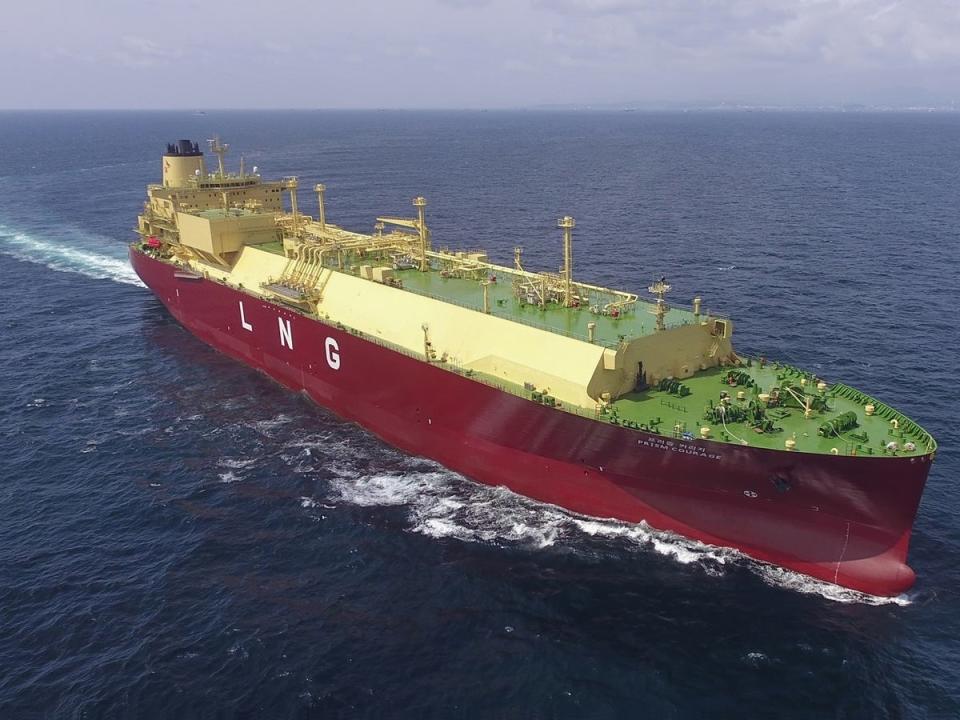Autonomous cargo ship completes first ever transoceanic voyage

A self-steering ship has completed the world’s first transoceanic voyage of a large vessel using autonomous navigation technology.
Avikus, which is a subsidiary of the world’s largest shipbuilding company HD Hyundai, announced that the 180,000 square-metre-class ultra-large vessel Prism Courage completed the 20,000km (12,500 mile) journey on 2 June.
Setting off from the Gulf of Mexico, the Prism Courage sailed through the Panama Canal before crossing the Pacific Ocean to the Boryeong LNG Terminal in South Korea.
The voyage took 33 days to complete, with route optimisation increasing fuel efficiency by around 7 per cent and reducing greenhouse gas emissions by around 5 per cent, according to Avikus.
The AI software also managed to avoid around 100 collisions with other ships during its journey.
Captain Young-hoon Koh of the Prism Courage said the autonomous navigation technology was used for “maintaining navigating routes, autonomously changing directions, and avoiding nearby ships, which were all increasing ship crews’ work conveniences”.
HD Hyundai has previously tested the first fully autonomous operation of a 12-seater cruise ship in South Korea and plans to extend its technology to other vessel sizes.
“It is meaningful that we have successfully tested the Level 2 system to operate a vessel beyond the Level 1 technology providing optimal routes,” said Avikus CEO Do-hyeong Lim.
“We will lead innovation by upgrading autonomous navigation solutions not only for large merchant ships but also for small leisure boats.”
Later this year, a Norwegian company is planning to launch the world’s first completely crewless cargo ship along a route between Herøya and Brevik.
The Yara Birkeland is also 100 per cent electric and is designed to transport cargo that would otherwise be delivered by land. The vessel could replace up to 40,000 lorry journeys a year once fully operational, according to Kongsberg, the company responsible for the autonomous technology.
A self-steering passenger ferry also launched in Finland in 201.

 Yahoo Finance
Yahoo Finance 